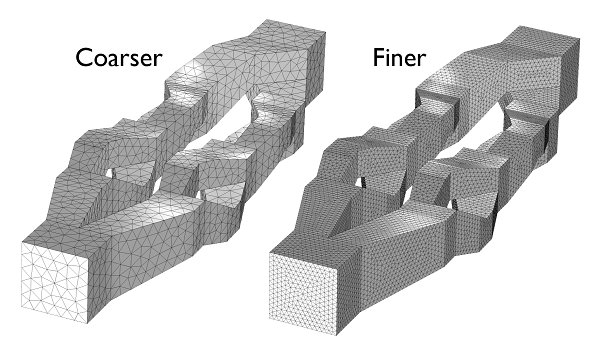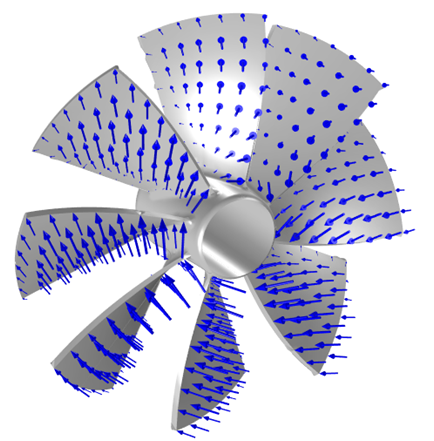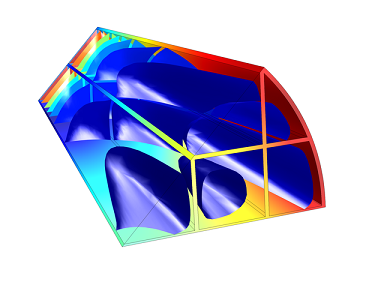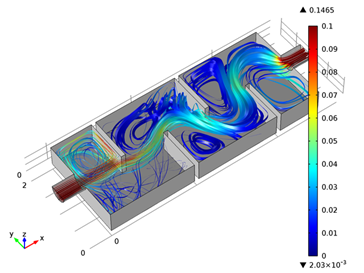Latest Posts

How to Model Multiphysics in Multimaterial?
Dr. Raj Thiagarajan is a prolific producer of interesting research articles ranging from waste-water treatment to acoustics metamaterials, and lots in between. As the Managing Director at ATOA (“Atom TO Application”) Scientific Technologies, a COMSOL Certified Consultant, Raj has had to simulate all types of applications. Now he will show you how to use multiphysics simulations in multimaterial and composite product design.

Meshing and Optimization in Engineering Magazines
Online engineering magazines, like Design World and Desktop Engineering, are great for anyone out there interested in emerging technologies. I especially liked a few recent articles: two in Design World’s “CAE Solutions” section and one in Desktop Engineering’s simulation section, detailing a couple of major topics important to finite element analysis, or FEA. First there is meshing, the foundation of FEA software. Second, there is optimization, which is all about maximizing efficiency and improving results. The key for any production […]

Using Point Cloud Data in Your COMSOL Model
There is sometimes a need to include data from other simulation packages into a COMSOL Multiphysics model. There are a variety of ways in which this can be done, but one of the easiest approaches is to read in the point cloud data via a spreadsheet format text file. In this blog post, we walk through the steps of reading in such data, and using it in a COMSOL model.

Probing Your Simulation Results
For a transient simulation, imagine if you could simply insert a virtual sensor in a model at a certain location and then monitor the evolution of a field value over time while solving. In COMSOL Multiphysics® you can do just that by using Probes. You define a probe in the Model Builder tree right under the Model Definitions node. Measuring the value at a point is not the only thing you can do with probes, but in this blog post we […]

Modeling Chemical Reactions: Thermal Stress Analysis
The beauty of COMSOL is that it provides a unified modeling platform no matter what type of simulations you are performing. This is almost unique to the CAE market. Recently we showed you how to model chemical reactions using a monolith reactor as our example. First we walked you through solving the reaction kinetics and then involving plug flow, next we created a full-scale 3D model of the reactor. A chemical engineer may feel comfortable using a software optimized for […]

Optimal Distribution: Tree Roots and Microreactors
I love trees and my favorite is definitely the ficus, all varieties included. A few weeks ago I had the chance to admire a stately ficus microcarpa (see figure below). What struck me above all were its aerial roots. Roots are designed to absorb water and nutrients, sustaining the tree and synthesizing substances responsible for its growth. A thought crossed my mind right away: the shape of those roots and the way they coalesce have surely been optimized by Mother […]

The Graphene Revolution: Part 1
Graphene is a special type of material consisting of a single layer of carbon atoms arranged in a hexagonal lattice. Graphene in its stable form was discovered at the University of Manchester in 2003 (coincidentally while I was there studying for my Masters degree) and resulted in Nobel Prizes in 2010 for the two researchers who discovered it. Recently, graphene has been making the mainstream news; the European Commission has pledged €1 billion (yes, that’s billion with a b) to […]

Water Purification Using Ozone
Water purification is the process by which chemicals, contaminants, and sediments are removed from dirty water to make it clean, and there are many processes through which this can be done. What you might not know, is that ozone molecules can be used as a means of disinfection in the purification process. “Ozonation” has been used to purify water, kill germs and bacteria in food, and even get rid of bad smells. Not only does ozonation provide clean water without […]



